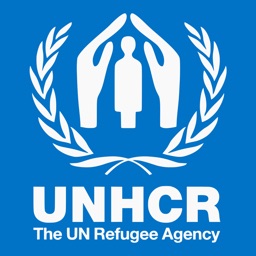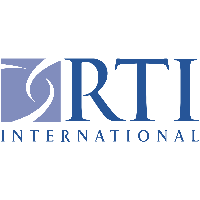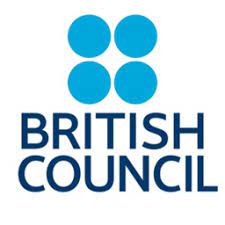
-
Schedule
Full-time
-
Job Type
Regular
-
Exp Level
Senior Level
-
Experience Year
1/2/3
-
Salary Offer
Negotiable
-
Closing Date
Jul 28, 2024
Job Description
Terms of Reference
2. Purpose and Scope of Assignment
The postholder will play a critical role in establishing the initiative, driving forward country level activities on Connectivity for Refugees in Ethiopia. Duties will include but are not limited to:
Support the establishment of the global Refugee Connectivity initiative in Ethiopia through a national platform, engaging on all relevant elements of delivery as required.
Establishing relationships with key stakeholders including Government and Regulators, Connectivity Service Providers (Mobile Network Operators, Internet Service Providers, others), civil society et al and facilitate strong coordination through establishment of regular meetings
Develop country level strategy and approach in liaison with local, regional and global counterparts
Overseeing country level assessments and connectivity mapping, in liaison with global and local partners
Supporting in the design of Connectivity solutions plans in country and overseeing delivery
Support in advancing connectivity for schools, and supporting the delivery of major commitments for connected schools i.e. Vodafone Foundation
Coordination with relevant UNHCR colleagues spanning Protection, Education, Livelihoods, Development Officer, ICT et al. on relevant aspects of the initiative and how it supports their portfolios or where they are well positioned to contribute
Monitoring and evaluation of connectivity solutions and interventions in county to support with donor reporting
Support in development of national fundraising platforms around Connectivity for Refugees, positioned for support from different stakeholder audiences including private sector, development actors, governments
Managing knowledge around the Connectivity for Refugees initiative in country, compiling data, creating reports etc.
Liaison with support structures on Connectivity for Refugees both within UNHCR through the Innovation Service, and through the wider initiative coordination
Support on other activities / interventions as required
3. Monitoring and Progress Controls
The incumbent will report directly to Deputy Representative and have dotted line reporting to the Senior Innovation Officer overseeing the Connectivity for Refugees initiative in UNHCR Innovation Service. The incumbent will participate in regular bilaterals with the supervisor, and joint meetings with the dotted line management to the Innovation Service on a monthly basis to prioritize and review agreed-upon deliverables for the period. Additionally, in order to help support the Refugee Connectivity initiative, the incumbent will join multistakeholder meetings with key partners held on a regular basis in order to align and coordinate efforts on projects within the initiative.
4. Qualifications and Experience
a. Education
Undergraduate degree (essential) or Graduate degree (desired) in a related discipline (Politics, Human Rights, Computer Science, Telecommunications, Innovation, Technology, Engineering etc.)
b. Work Experience
Minimum of 3 years (with Graduate degree) or 2 years (with Undergraduate degree) of previous job experience in the working in a humanitarian aid or development context with prior experience or interest in issues relating to information technology, telecommunications and digital services, a focus on community-facing solutions a distinct advantage;
Prior Experience managing complex technology projects desired
Prior experience working with a variety of stakeholders in the telecommunications ecosystem i.e. Mobile Network Operators, Satellite Companies, Telecommunications Regulators etc. a distinct advantage
Strong experience in coordination and advocacy, with experience in the UN system a distinct advantage;
Prior experience working in forced displacement contexts.
c. Key Competencies
(Technical knowledge, skills, managerial competencies or other personal competencies relevant to the performance of the assignment. Clearly distinguish between required and desired competencies)
Standard Job Description
Associate Innovation Officer
Organizational Setting and Work Relationships
UNHCR's Innovation Service aims to create an enabling environment for innovation to flourish in UNHCR by equipping staff with the knowledge, resources, and skills they need to use innovation as a tool to solve challenges.
The Innovation Service facilitates creative problem-solving alongside colleagues, partners, and refugees, generating new and needed, multi-disciplinary approaches that benefit displaced communities and the Organization.
All team members are expected to be able to work on a range of projects in a collaborative manner regardless of subject area and geographic location (HQ, Multi-Country or Country Office). At times this means working directly with the High Commissioner's team, at other times with the Division of Human Resources, with a remote field operation in an emergency, or in a CRRF operation. As such, the incumbent is experienced in using innovation processes and methodologies through which to innovate, on a wide-range of challenges faced by refugees, UNHCR staff, and partner staff, agnostic of subject area.
All UNHCR staff members are accountable to perform their duties as reflected in their job description. They do so within their delegated authorities, in line with the regulatory framework of UNHCR which includes the UN Charter, UN Staff Regulations and Rules, UNHCR Policies and Administrative Instructions as well as relevant accountability frameworks. In addition, staff members are required to discharge their responsibilities in a manner consistent with the core, functional, cross-functional and managerial competencies and UNHCR's core values of professionalism, integrity and respect for diversity.
Duties
- Participate in innovation projects and programmes (both within the service and at organizational level), including research, design, planning, coordination, implementation and monitoring functions as and when requested/appropriate.
- Support UNHCR colleagues in identifying pressing challenges in their context and co-develop novel and creative solutions by drawing on a broad range of innovation approaches, frameworks and methods.
- Cultivate and manage diverse strategic relationships with both UNHCR and external partners, including consultants, donors and subject matter experts, academia, civil society and private sector organisations.
- Proactively solicit and exchange views and methods, ensuring that relevant and promising lessons learned are incorporated from broader ecosystems into UNHCR's work.
- Support fundraising opportunities for project partners or UNHCR field operations, either through the application and management of a fund or supporting projects managed by innovation fund opportunities.
- Work with strategic communications, designers and writers to contribute to the production of compelling written and visual material to advance the goals of the Innovation Service.
- Promote and support a culture of innovation, learning, risk-taking, diversity and inclusion within operations and teams and across portfolios.
- Remain up-to-date on new innovations, approaches and technologies, particularly those that could be potentially applied to the humanitarian sector and/or forced displacement settings.
- Document and share insights on innovation in UNHCR as a way of strengthening the Innovation Service's work and building internal credibility for innovation as a respected source of good ideas and tested approaches.
- Ensure that Age, Gender and Diversity (AGD) sensitive analyses, rights and community-based approaches inform human-centred design processes.
- Apply relevant research, evidence and data-driven decision making to support UNHCR and Partners in the improvement of services and programmes, as well as innovative approaches through assisting in documenting, codifying and disseminating key programme processes and lessons learned.
- Support the identification and management of risks and seek to seize opportunities impacting objectives in the area of responsibility. Ensure decision making in risk based in the functional area of work. Raise risks, issues and concerns to a supervisor or to relevant functional colleague(s).
- Perform other related duties as required.
Minimum Qualifications
Years of Experience / Degree Level
For P2/NOB - 3 years relevant experience with Undergraduate degree; or 2 years relevant experience with Graduate degree; or 1 year relevant experience with Doctorate degree
Field(s) of Education
Social Sciences; Science, Technology,
Engineering; Humanities; Administration,
Management; or other relevant field.
Certificates and/or Licenses
Not specified,
Relevant Job Experience
Essential
Experience of forging and/or maintaining partnerships and collaborative working methods, simultaneously with a range of stakeholders, including private sector entities, donor governments, civil society, communities of concern, INGO, NNGO, and other UN entities. Experience applying innovation and/or innovative methodologies in forced displacement contexts. Experience of providing support to a range of operations through capacity building around scale, evidence building and provision of guidance and creation of tools. Experience managing budgets for innovation activities, including experimentation. Experience working in organisations with multi-year planning processes, such as development agencies, whether governmental, UN, or other.
Desirable
A strong understanding of theory, principles, established approaches and evidence concerning effective innovation and programme design.
Functional Skills
HR-Inclusion, Diversity and Gender strategy design and implementation
MG-Team building (development/facilitation)
(Functional Skills marked with an asterisk* are essential)
Language Requirements
For International Professional and Field Service jobs: Knowledge of English and UN working language of the duty station if not English.
For National Professional jobs: Knowledge of English and UN working language of the duty station if not English and local language.
For General Service jobs: Knowledge of English and/or UN working language of the duty station if not English.
How to Apply
For more information and job application details, Click on the button below!

